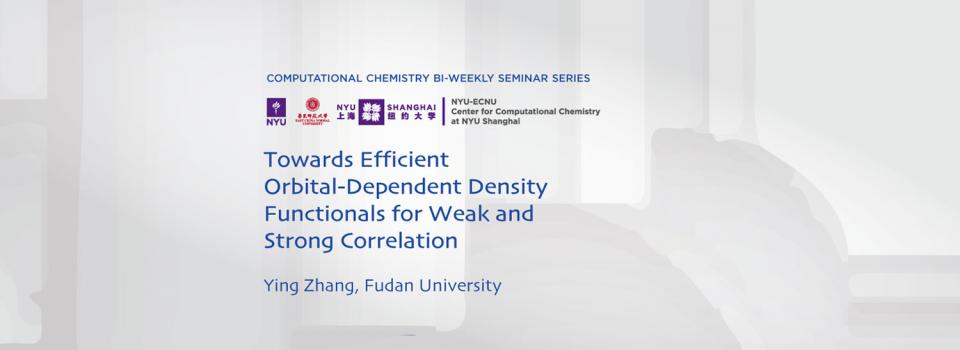
Abstract:
We present a new paradigm for the design of exchange-correlation functionals in density-functional theory [1, 2]. Electron pairs are correlated explicitly by means of the recently developed second order Bethe-Goldstone equation (BGE2) approach. Here we propose a screened BGE2 (sBGE2) variant that efficiently regulates the coupling of a given electron pair. sBGE2 correctly dissociates H2 and H2+, a problem that has been regarded as a great challenge in density-functional theory for a long time[3]. The sBGE2 functional is then taken as a building block for an orbital-dependent functional, termed ZRPS, which is a natural extension of the PBE0 hybrid functional. While worsening the good performance of sBGE2 in H2 and H2+, ZRPS yields a remarkable and consistent improvement over other density functionals across various chemical environments from weak to strong correlation.
[1] IY Zhang et al., Phys. Rev. Lett. 117, 133002 (2016);
[2] IY Zhang et al., New J. Phys. 18 073026 (2016);
[3] AJ Cohen et al., Chem. Rev. 112 289 (2011).
Biography:
Dr. Ying Zhang obtained his Ph.D. degree in Chemistry from Xiamen University, China (2010) and KTH Royal Institute of Technology, Sweden (2011). In 2012, he joined the Fritz Haber Institute (FHI) Berlin, Germany with a Max-Planck fellowship and was then promoted to be a group leader soon. In March 2018, he moved to the Chemistry Department of Fudan University as an awardee of “The Recruitment Program for Young Professionals”. His research focuses on the development of advanced first-principle electronic-structure methods towards predictive accuracy for molecules and materials. He authored and co-authored 40 peer-reviewed papers and one Springer book with over 2300 citations and an H-index of 22 (Google Scholar, Nov. 2018).
Bi-Weekly Seminar Series by the NYU-ECNU Center for Computational Chemistry at NYU Shanghai


